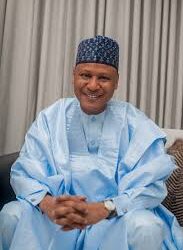The federal government is set to take over direct custody of revenues generated by its key agencies as part of efforts to improve income generation and block leakages.
Many federal government revenue generating agencies, commissions and enterprises are being accused of either spending at will most of the monies, they generated not declaring correct figures.
It was learnt that specialised directors from the Office of the Accountant- General of the Federation would be posted to 10 revenue-generating agencies of the government in the first instance.
These include the Nigerian National Petroleum Corporation (NNPC), Nigerian Ports Authority (NPA), Nigeria Maritime Administration and Safety Agency (NIMASA), Federal Inland Revenue Service (FIRS), Nigeria Customs Service (NCS), Corporate Affairs Commission (CAC), Department of Petroleum Resources (DPR), Nigerian Communications Commission (NCC) Federal Airports Authority of Nigeria (FAAN) and Nigeria Shippers’ Council (NSC).
The Minister of Finance, Budget and National Planning, Mrs Zainab Ahmed, gave the hint at the opening of a three-day orientation programme for 50 directors of revenue who are to be posted to various Government-Owned Enterprises (GOE).
According to her, the initiative was in compliance with a presidential approval conveyed via a circular reference SGF.50/S.3/C.9/24 of 16 October 2018, on the approved Revenue Performance Management Framework for Government-Owned Enterprises (FGOEs).
The finance minister said, “Government is increasingly concerned with the dwindling profile of revenue and this trend has to be quickly arrested particularly with key revenue generating agencies of the government.
“Analysis of budgets of some of the FGOEs show that they have the capacities if properly managed, to significantly improve the revenue base of the federal government.
She noted that it was in this light that the deployment of the treasury directors was considered expedient as a pilot project.
“The discharge of these duties will be aided with the deployment of information technology. The Integrated Revenue Monitoring System is being put in place to help the monitoring of the revenues of the FGOEs online real-time and to ensure its improved transparency and accountability,” she said.
“It is my considered opinion that the presence of directors of revenue at the FGOEs will ensure strict adherence to extant rules and regulations in the areas of compliance to the approved budget and due process mechanism in procurement and payments.
“The directors of revenue, in the course of the discharge of their functions shall be involved in the revenue operations of the FGOEs, have a better understanding of business processes and operations of the FGOEs and cause improved transparency and accountability in revenue reporting by the FGOEs.
“In addition, they are expected to seek opportunities and avenues for revenue improvements, which are the ultimate aim of the government,” she said. Also, the Secretary to the Government of the Federation (SGF), Boss Mustafa who was represented at the event, said only through professional treasury officers that the government would get a better understanding of the business processes and operations of its revenue-generating agencies. According to him, “Government has noted that a number of GOEs remit less operating surpluses to the Consolidated Revenue Fund than is required by law and/or financial regulations.
“All the GOEs concerned should cooperate with the treasury officers posted to them so as to achieve this noble objective of the government. They are to be regarded as partners in progress that they are and be allowed unfettered access to relevant information and records.
“The policy is a reform initiative aimed at generating more revenue and associated remittance into the government treasury and to also improve the operational performance of all GOEs. Hitherto, the government has noted that a number of GOEs remit less operating surpluses to the Consolidated Revenue Fund than is required by law and/or Financial Regulations,” he said.
Earlier in his speech, the Accountant General of the Federation, Ahmed Idris said what they planned to achieve by sending the directors to key revenue-generating agencies was transparency.
He added that the government was poised to improve revenue performance including a sustainable source of funding budgets and other programmes that would uplift the lives of the people.
An economist, Tope Fasua, said on Tuesday that federal government’s policy on posting revenue directors to key revenue-generating agencies to plug leakages and ramp up revenue collections is only a temporary remedy to a multi-faceted problem.
Fasua, who is the Secretary of Daily Trust Board of Economist said the federal government needed to consider the extant laws establishing the agencies in respect of their independence in such a way that this intervention would not violate the laws backing their functions.
Financial expert, Musa Hadi expressed fears that the revenue directors would also be compromised. “They are humans and they are Nigerians,” he said.
“What we need is serious reorientation; we need to change the mindset of our people and government should also meet the basic needs of people to reduce their obsession with money. Many people are corrupt because they are afraid of the unknown,” he said.
He said Nigeria also had expenditure problem and this was where the government should work on to block revenue leakages and channel scarce resources into critical expenditure needs.
“We have an expenditure problem, which most of them are not talking about. If the budget is still driven by the envelope system, where every ministry or agency shows up with a luxury list of what they want to buy, which does not fit into a national agenda, then there is a problem,” he said.
He said there should be a holistic review of how the public sector in Nigeria was run otherwise the revenue directors will do little or nothing to achieve their mandate.
He advised the federal government to buy made-in-Nigeria goods, such as locally manufactured vehicles, to cut costs of governance.
“No government person should buy anything not made in Nigeria. That is the way it should be. In the UK and US, that is the way it is,” he said.









